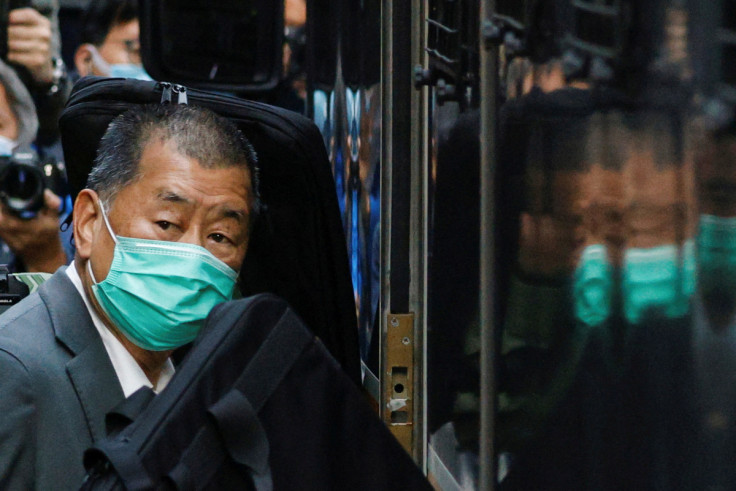Hong Kong Media Tycoon Jimmy Lai Loses Bid To Terminate National Security Trial

A Hong Kong Court on Monday rejected an application to terminate a landmark national security trial against media tycoon Jimmy Lai, a case that could see him spend the rest of his life in prison if convicted.
Jimmy Lai, 75, is the founder of now shut pro-democracy newspaper Apple Daily and one of the most prominent Hong Kong critics of China's Communist Party leadership, including President Xi Jinping.
Lai and his three companies, Apple Daily Limited, Apple Daily Printing Limited, AD Internet Limited faced a total of three charges under the national security law, including collusion with foreign forces.
Beijing imposed the national security law on Hong Kong in 2020 after months of anti-government protests. The law punishes acts including subversion, collusion with foreign forces and terrorism with up to life in prison.
Lai is also charged with conspiracy to print seditious publications linked to Apple Daily, that closed in June 2021 after police arrested its staff and its assets were frozen by authorities. Sedition is punishable by a maximum two years jail.
Lai has pledged to plead not guilty and has been in detention for more than two years. His trial is scheduled to begin in September.
Lai's lawyer Robert Pang applied to terminate the proceedings arguing that there is an apparent bias against Lai by the court due to a lack of transparency in the appointment of national security judges by Hong Kong's Chief Executive John Lee.
"If there is any question about the independence and impartiality of the court... that cannot be allowed," said Pang.
Pang also argued that blocking Lai's British lawyer Timothy Owen from representing him in the trial is "persecution not prosecution."
Dismissing Lai's challenge, High Court judges Esther Toh, Susana D'Almada Remedios and Alex Lee, argued that they were appointed as national security judges by the chief executive upon the recommendation of the Judicial Officers Recommendation Commission, an independent advisory body that consists of the Chief Justice and other members.
The security law gives the power of the Chief Executive to select a panel of judges who can hear national security cases.
The High Court last Friday dismissed an attempt by Lai to challenge a decision by security officials to effectively bar Owen from representing him in the trial.
The use of foreign lawyers by both prosecutors and defence has long been allowed in the former British colony as part of its rule of law traditions.
Lai was jailed for five years and nine months last December on a fraud charge.
© Copyright Thomson Reuters 2024. All rights reserved.





















